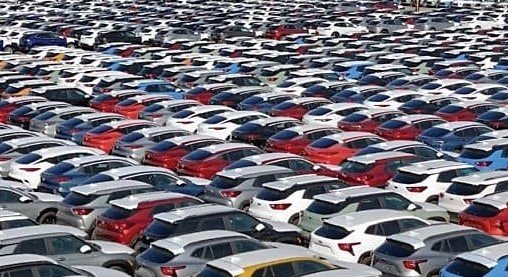Local auto manufacturers fear that the market share of used car imports could surge to 50% within a short period if current policies persist.
“Industry data indicate that used-car imports have already captured around one-quarter (25%) of the domestic market. If current policies persist, this share could surge to 50% within a short period,” said Shehryar Qadir, Senior Vice Chairman Paapam.
He added that this means that every second car sold in Pakistan would be an imported used vehicle, effectively displacing local production capacity and threatening the sustainability of OEMs and their supplier networks.
“Such a shift will derail the localisation roadmap, leading to massive foreign-exchange outflow and loss of manufacturing capability that took decades to build,” he said, adding that recent fiscal adjustments have disproportionately favoured used-car imports by significantly reducing their effective duty and tax rates.
Imported Vehicles:
Thus, imported vehicles, often older and undervalued, enter the market at artificially low prices, creating an uneven playing field for local manufacturers who pay full duties and comply with domestic standards.
“This steep drop in import taxes undermines the government’s industrialisation objectives and erodes the competitiveness of domestic assemblers, who have invested heavily in localisation, employment and technology transfer.
“As PAAPAM and PAMA have cautioned, such incentives for used-car imports will discourage future investment and promote de-industrialisation rather than growth,” Shehryar Qadir stated.
Besides, he added, used-car imports introduce a “double-down” effect on depreciation. Old vehicles lose value quickly, which depresses overall market prices and diminishes resale values for new locally manufactured cars.
“This artificially deflated market discourages customers from purchasing new vehicles and erodes manufacturers’ margins. It causes effects like reduced production, declining vendor orders, and an overall weakening of the domestic automotive value chain.
“Instead of supporting a modern, safety-compliant, and efficient local industry, policy distortions reward aged, depreciated imports that add no long-term value to the economy,” he stated.
Now, he added, the government must decide whether it wants to remain a market for second-hand imports or develop as a strong manufacturing hub.
“The ‘trade of industry’ question goes beyond vehicle sales — it reflects whether we choose short-term consumer convenience or long-term industrial capability.
“Countries that have built their auto industries did so by nurturing domestic manufacturing while gradually integrating with global markets.
“Liberalising used-car imports at the cost of domestic production is a policy choice that could permanently weaken national industrial competitiveness,” he said.



